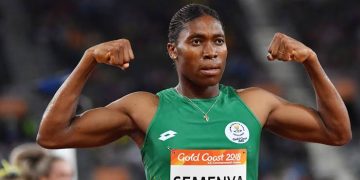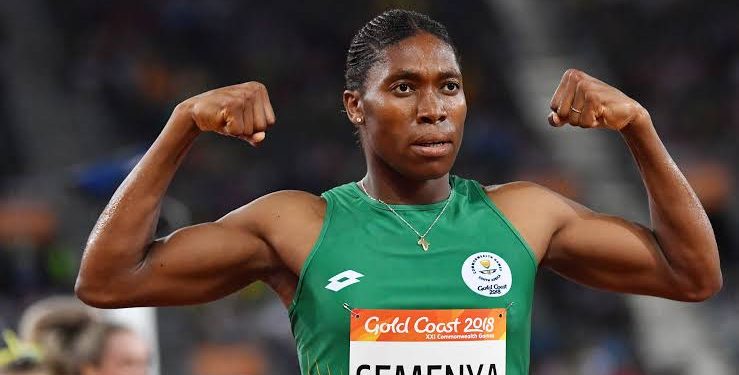By Victor Kanayo
Despite the European Court of Human Rights (ECHR) ruling in favour of South Africa’s two-time Olympic champion, Caster Semenya, in a case against the Swiss Government, World Athletics has insisted its rules on differences in sex development (DSD) will remain in place.
World Athletics Defiant
The governing body had acknowledged the ECHR decision, but said it had no plans to alert its regulations at this stage.
Also, the judgement is also said to be against the Swiss government, not World Athletics.
The global athletics consistently argued its rules are lawful and necessary to ensure female athletes participate on fair and equal terms, and President and International Olympic Committee member, Sebastian Coe, last year hit out at “second-rate sociologists” who have questioned its stance, Insidethegames reports.
Semenya Predicament
Semenya won the Olympic gold medal in the women’s 800 metres at London 2012 and Rio 2016, but rules which came into effect in 2019 capped athlete testosterone levels in women’s events from 400m through to the mile for competitors with DSD which meant she would be required to take testosterone-suppressing medication to compete in her best events.
The 32-year-old had made two unsuccessful legal attempts to overturn the ruling at the Swiss Federal Court and the Lausanne-based Court of Arbitration for Sport, which ruled in 2019 that World Athletics’ rules were necessary for fair competition.
She lodged an appeal to the ECHR in February 2021, but did not compete at Tokyo 2020 having missed the qualifying mark for the women’s 5,000m.
Semenya returned to the World Athletics Championships in Oregon last year for the first time since her third 800m world title in 2017, but failed to progress through her heat in the 5,000m.
By a four votes to three margin, the ECHR’s Chamber of judges chaired by Andorra’s Pere Pastor Vilanova, ruled that Semenya’s appeal had not been heard properly, although the case was against the Swiss Government rather than World Athletics, which means they are not bound by the judgment.
In another high-profile case, Namibia’s Christine Mboma and Beatrice Masilingi both missed out on competing in their preferred women’s 400m distance event at Tokyo 2020 due to the DSD rules.
Both competed in the 200m instead, with Mboma earning a silver medal and Masilingi placing sixth.
Further rule changes introduced in March reducing the amount of blood testosterone permitted for athletes with DSD and extending the provisions to all track and field events have ruled both athletes out of this year’s World Championships, due to open in Budapest on August 19.
An interim ruling allowed athletes competing in previously unrestricted events to compete if they supressed testosterone levels below 2.5 nanomoles per litre for a minimum of six months, but this left insufficient time for Mboma or Masilingi to participate in the Hungarian capital.




































